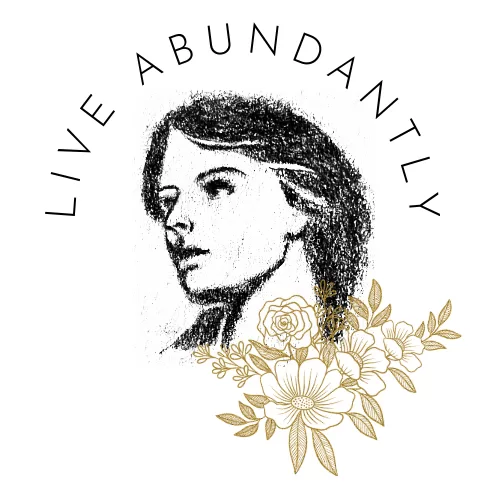Part 1: How to Get things Done and Become a More Effective Person
Shifting Your Mindset Around Starting New Initiatives

Here’s a scenario that may be familiar to many of us. You get inspiration for a new idea – maybe you’re thinking of learning a new skill, starting a new project, or beginning a new fitness routine. You’re excited by all the possibilities – this could really impact your life. But then, reality starts to set in. It would take a lot of time and energy and right now isn’t the best time. How would you be able to do it anyway? This will just end up being another thing you start and drop. So, you push the thought to the back burner until eventually, it fades out. If you are tired of their narrative playing out in your own life, you can learn to become a more effective person and start accomplishing your goals.
Self-doubt is a powerful inhibitor to creating meaningful change. So how do we shift the mindsets that prevent us from actualizing our ideas? By changing the behaviors – or lack of behaviors – that create the story of ineffectiveness in our lives. When we take concrete steps even before we feel ready, the old mindsets will naturally fade and be replaced with confidence as we see progress. Action is the antidote to self-doubt. So, let’s dive into the behaviors that enable us to get things done and become a more effective person.
This article will cover how to step into the right mindset to start any project, habit, or task. It discusses practical ideas on how to get started and overcome common obstacles.
Behave like you’re already successful.
Deciding to start a new project or develop a new habit can feel overwhelming. Where do you start, and how do you know you’ll be capable of making a change in your life? Will you be able to turn this idea into a reality? We find ourselves overcome with fear or self-doubts. We try to think ourselves through potential hurdles, and the more we continue to think about it, the more insurmountable it begins to feel.
Action sparks change and fosters creativity while remaining stagnant extinguishes inspiration. Stagnation creates those feelings of being in a rut in our lives. When you have an inspiration, acknowledge your doubts but don’t wrestle with them. Simply start taking action toward fulfilling your inspiration, even though you haven’t worked past the doubts yet.
In a passage on making changes in our lives by Thomas À Kempis, he describes a very anxious man who wishes that he knew he would persevere. As he meditates on this, in his heart he hears God respond, “If you knew [that you would persevere], what would you do? Do now what you would then, and all will be well.” This is a profound and simple way of approaching any new endeavor and confronting our fears. We don’t have to know that we will succeed. We simply have to act the way we would as though we were successful.
You don’t have to be yet fit to exercise, you simply have to be capable of putting on athletic clothing and moving. You don’t have to be an author to write, you simply need a computer or pen & paper and begin to write. As you do those things, you’ll find that you see yourself as fit, or as a writer, because we become what we repeatedly do. As you take action more often, you’ll find doubts less of a hurdle and grow in confidence.
“If you knew this, what would you do? Do now what you would then, and all will be well.”
Progress is Iterative – Have Fun.
We often put a lot of weight into every decision and outcome when we start something new. We classify points along the way as a success or a failure. Then, we feel discouraged when our attempts don’t yield the results we hoped for.
But what if we start our endeavors with a mindset of play rather than a rigid set of criteria of success and failure? One of the most enjoyable aspects of starting something new is the creativity and problem-solving. You’re constantly learning and experimenting, and if you allow yourself to approach it with an attitude of play, the process can become very fun rather than discouraging. When you play, you’re exploring new ways of doing things and being creative. It’s an opportunity to experiment, adapt, and problem-solve without the pressure of needing to be perfect. Try something, and if it works, lean in. If not, try something different. It’s part of the creative process.
Whatever new thing you’re trying to do, figure out how to add an element of lightness and play in it, and release a bit of the seriousness. If it’s exercise, try dancing, working out in a beautiful location, meeting with friends, or making it adventurous. In the book Atomic Habits by James Clear, one woman finally found the motivation to get fit because she wanted to be able to walk across the desert in Egypt!
If it’s a task or a project on your computer, go to a coffee shop or park, invite friends to do it with you, or give yourself a reward to look forward to. Approach things from a place of creativity and fun. You’ll be surprised not only how your endeavors become less daunting, but how life becomes more fun and full of possibilities. Life is too short not to find ways to enjoy it.
Most Decisions are Reversible.
Decisions and actions create progress, while too much deliberation can cut it off completely. Start thinking of your decisions along two categories – reversible or permanent. And realize that most decisions are not permanent. At Amazon – an organization known for its agility, speed, and innovation – there is a concept of one-way vs. two-way decisions. Learning to apply these to my work life and later to my personal life, has been one of the most transformative mentalities. It helped me to stop allowing fear to dictate my actions – or more often, inaction. Adopting this understanding enabled me to move forward, experiment quickly, and become a more effective person.
One-way door decisions are decisions that are impossible or very difficult to reverse and require more deliberation and thought. Two-way door decisions, however, are decisions that can be reversed – even if at the outset, they often seem more critical than they are. Many of the decisions seem like permanent life-impacting decisions, but they’re usually not. You can walk through that door, decide you don’t like it, and walk back.
Recognizing that most decisions are reversible will empower you to go ahead and start acting on them and make more decisions more often. It’s so important to learn to do this because it creates the space for experimenting and learning quickly.
What’s the obvious next step?
When pursuing something new, we don’t always have to have the whole 5-year plan figured out. Sometimes, or perhaps more often than not, you simply have to identify the next step. And then do that. And once you do that, what is the next step from there? Breaking down the tasks of a new project or habit helps de-mystify it and makes it feel easier to accomplish.
I remember the moment this dawned on me in my own journey to becoming a more effective person. I needed to renew my passport and kept putting it off for months because it just seemed like a tedious process. When spending time with my friend, he asked me what the next step was, and I mentioned I needed a passport picture. So, he simply suggested that we stop by the drugstore on our walk home and I take the picture. And just like that, the first step was completed. I finally realized that this whole process was just a series of steps, rather than an overwhelming project I needed to avoid. This got the ball rolling, and within 2 weeks I had completed the whole process.
It’s incredible how breaking down an endeavor into smaller pieces completely changes our ability to start something. It removes the feeling of overwhelm. If you can just break it down into the next, most effortless step possible, it’s suddenly doable.
The Courage to Begin
One of the biggest behavioral changes we ultimately need to make is to start deciding to pursue our ideas with the belief that we can follow through. So many of us cut ourselves off before we even begin. But in order to live compelling lives we have to develop the capacity to act in line with our values. We have to develop the character to follow through on what we say we will do.
Doing this will enable us to start living our lives more boldly. Sometimes you simply have to decide to jump in headfirst, without being guaranteed the outcome. You’ll encounter obstacles along the way, but trust that you’ll be able to overcome them. You can’t win the battles you don’t fight. Simply choosing to start is winning one of the biggest battles.
Once you adopt this mindset, the next step to helping you become a more effective person is learning to develop the skill of consistency. This follow-up article covers steps for creating and maintaining consistency, and how adaptability and creativity are key to developing consistency.

Great tips for getting things done! Thank you so much for sharing your tips.
I’m glad they’re helpful!
Are you reading my mind? 😅 Everything you said perfectly reflects the challenges I’m facing right now specially with self-doubt. This post is like a guiding light, practical steps and excellent insights! Thank you for sharing
This makes me very happy to hear that it feels so relevant – I can totally understand this as I often have to remind myself of this! I do hope they help 🙂
Great tips that I can use and are relevant!
Glad to help 🙂
Great post. I really like some of your points such as decisions are reversible, having courage to begin, and behave like your already successful. Thanks!
Thank you! I’m glad to hear these points were helpful!